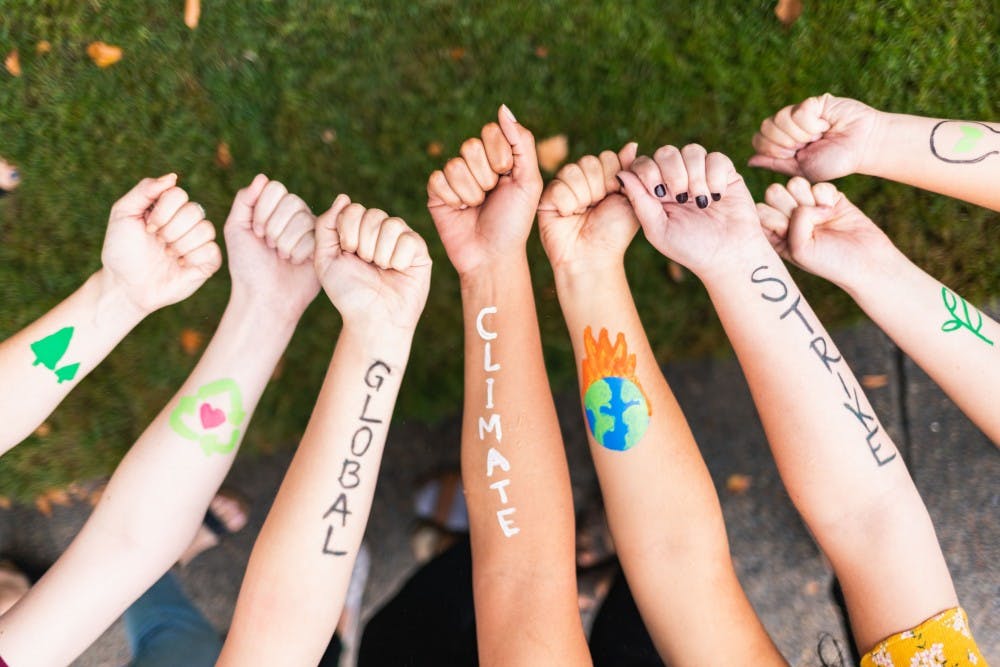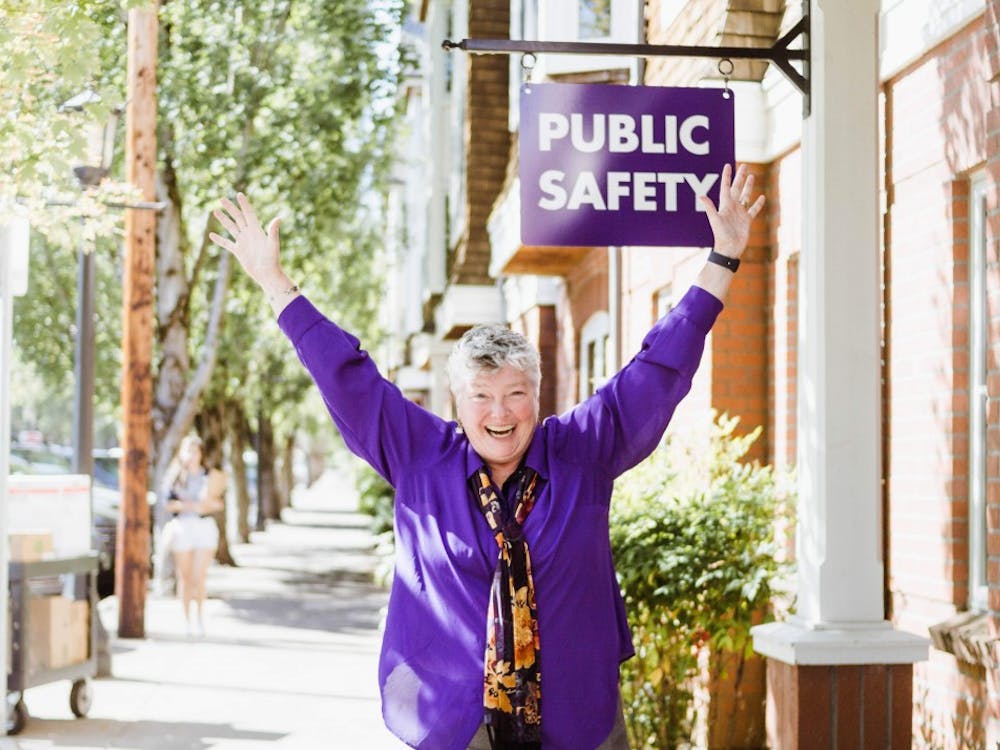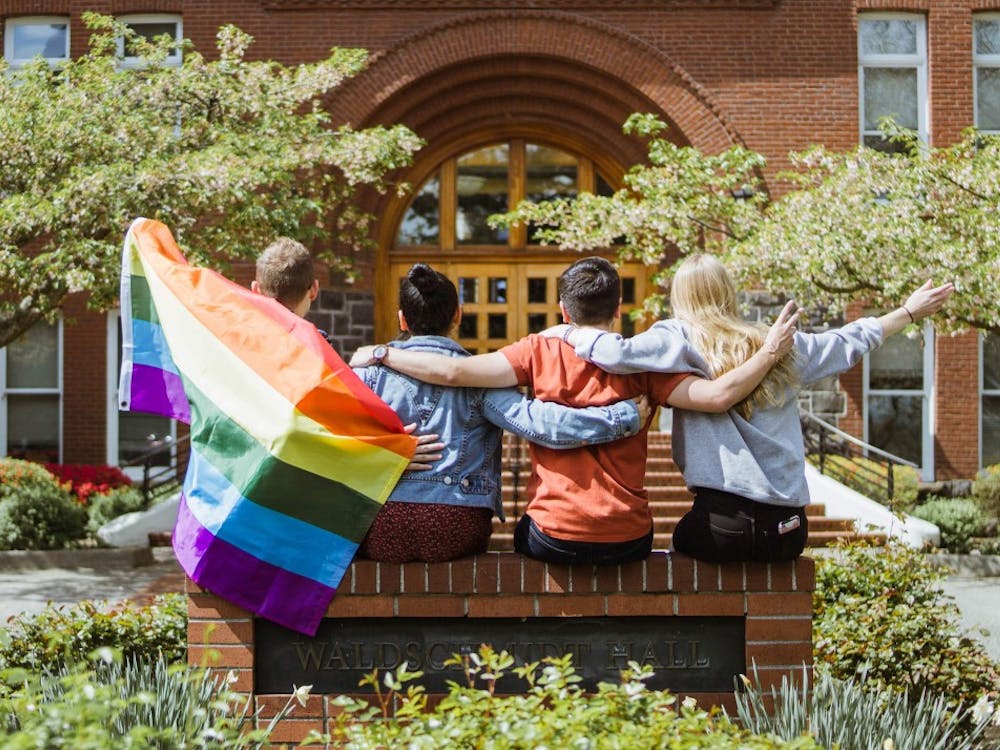On Sept. 20, millions of young people will walk out of their homes, workplaces and classrooms to join the Climate Strike — a global revolutionary climate justice movement demanding the end of burning fossil fuels. Some UP students and professors will be marching among them, excited to help put an end to the decline of the environment.
“I think it's really important for us to learn how we can use our voices to make a change,” junior Emily Hosoume said. “This is a very serious issue and now’s the time.”
Many young activists — like 16-year-old Swede Greta Thunberg — have called on their governments to take action on environmental issues and protest current policies. The point of the climate strike is to put pressure on corporate polluters and people who deny climate change altogether, according to 350PDX.
“All these senators and policymakers are going to be long gone, and we’re going to be the ones who have to suffer with it,” Hosoume said. “It's important to participate. It's a really big event and you get to be part of something monumental.”
Professor Alexa Dare is joining the climate strikers and taking her Environmental Advocacy and Organizing class to the rally at Portland City Hall. In her classroom, Dare said she aims to teach her students to look at what environmental advocates do in terms of building campaigns and observing critically.
Dare believes that there is something valuable about the “doing” part of learning. She said she thinks it’s important to be able to go and say, “What does this feel like?” and then think about how you can match those feelings to theories of building power through organizing practices.
Over 150 countries are organizing for the strike to build a loud, collective voice for more sustainable solutions, according to Global Climate Strike.

Members of the UP community will join the global movement to end the burning of fossil fuels. Photo illustration by Molly Lowney and Jennifer Ng.
Dare said she and her students pay a lot of attention to environmental protests. They answer questions like: How do people prepare for protests? What role does a protest serve? How do you assess whether a protest is effective?
Dare plans to use the upcoming Climate Strike as an opportunity to combine real-life values and academics.
“There is so much urgency right now about needing to act in order to improve our current policies in order to change individual practices and structural practices,” Dare said. “So, I think a lot of students will think on one side that this is a topic of study. And the other side is feeling the crisis of this moment with regard to environmental degradation and climate change and having to do something.”
Beyond ending the age of fossil fuels, Dare explained that the Climate Strike serves as an important learning lesson to students across the world. The majority of knowledge learned in academics is taught by sitting in a classroom and reading about it. To Dare, experiencing protesting can serve as valuable knowledge and a leadership opportunity.
“In a lot of ways on this particular issue, youth are the leaders and they are the leaders that we should be listening to,” Dare said. “I am personally committed to supporting that. There's so much power and smarts and commitment and optimism of the students here at the University of Portland.”
The Climate Strike is important to professors and students at the University of Portland, who say they are overwhelmed by the damage to the planet.
“The stuff in the past has led us to this point of almost irreversible damage, climate change and mass extinction,” Dare said.
This youth-led movement has proved to be important to many students in the UP community who say they are passionate about alleviating problems caused by older generations that disproportionately impacts their lives.
They believe the youth are the ones who are going to have to live with all the consequences that come with climate change.
“This is a demand for action,” said Katie Gomes, junior president of the ecology club. “Based on people that are going to be living the rest of their lives after other people that are currently making these policies now are gone. This is why this strike is powerful. Seeing all these young people and kids stepping up and demanding change that currently our governments and businesses aren’t willing to do.”
According to Common Dreams, 450 climate strikes are planned across the U.S. The majority of climate strikers are students forgoing class and taking action.
“We live in a weird world where students must sacrifice their education in order to avoid the destruction of their future,” Gomes said. “I think right now the priority needs to be to save the earth.”
Tessa Rodgers is a reporter for The Beacon. She can be reached at rodgerst21@up.edu.








